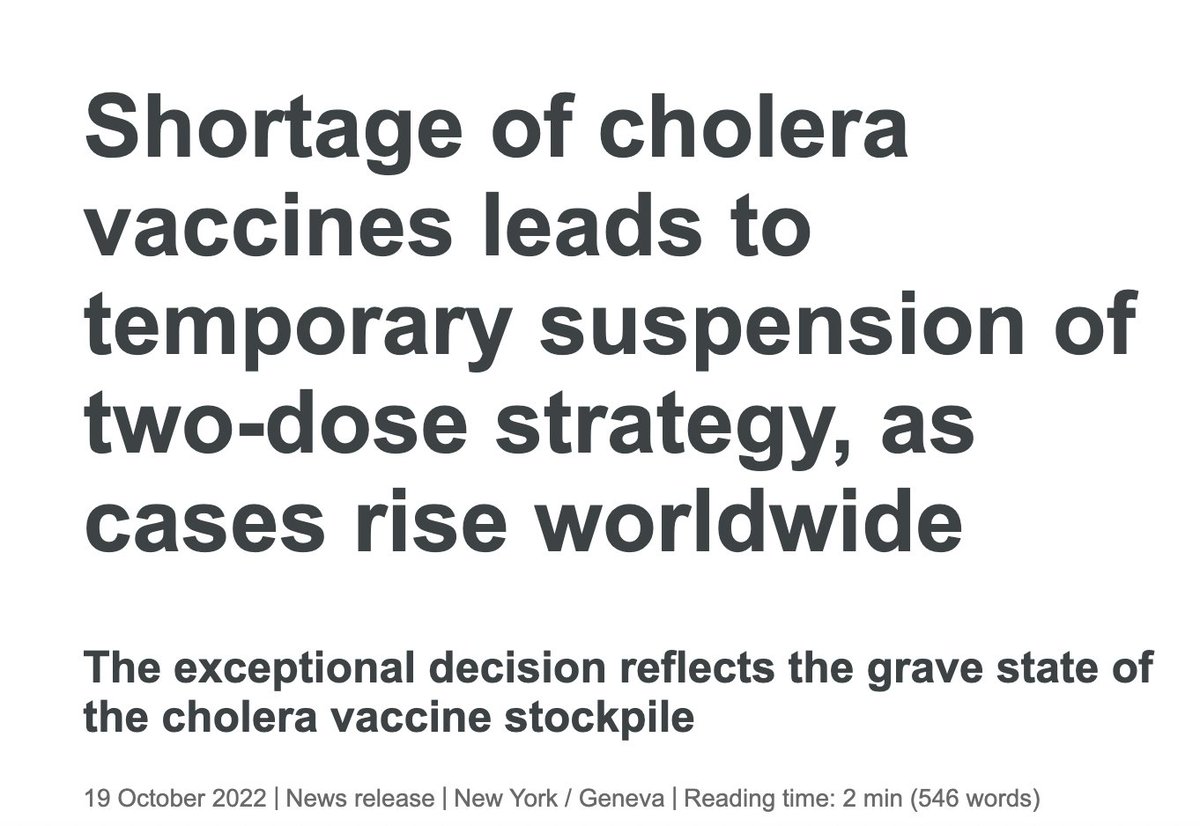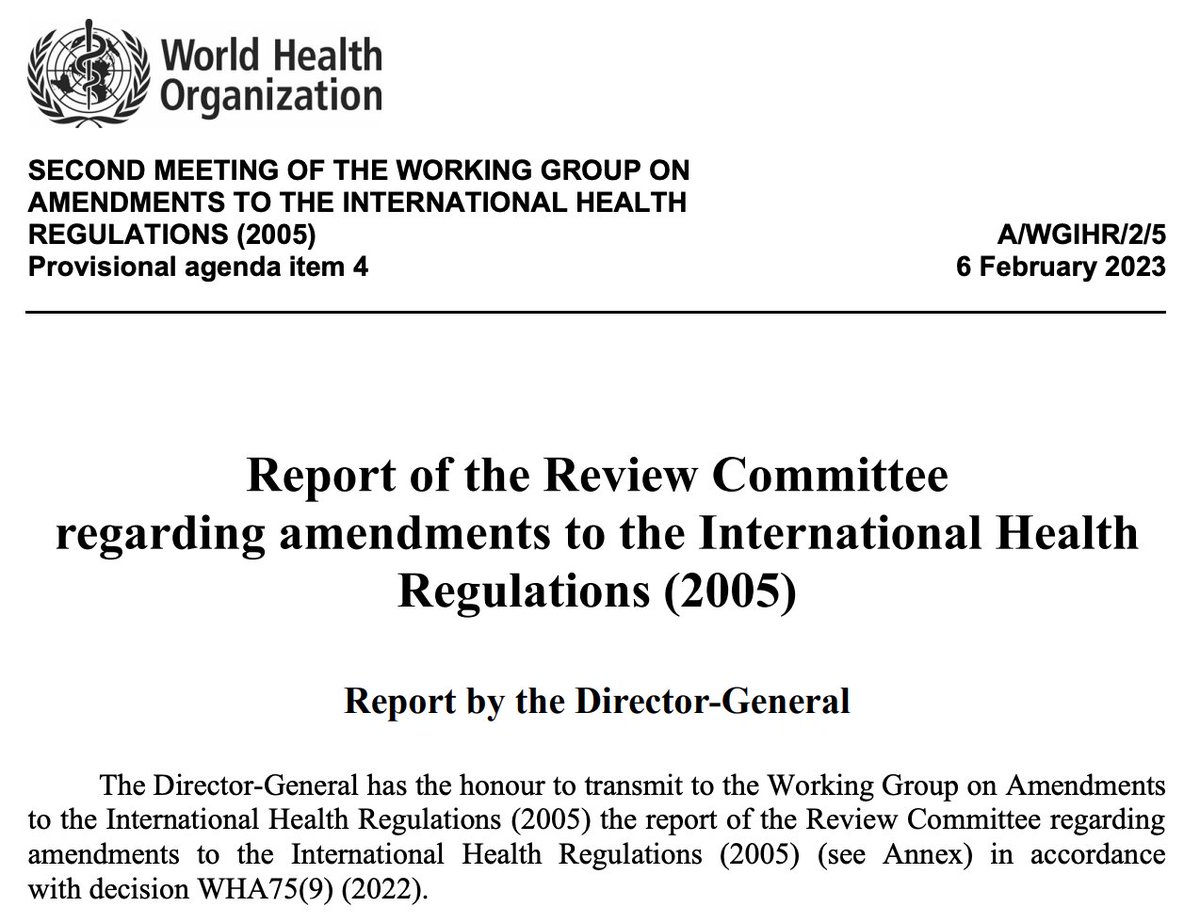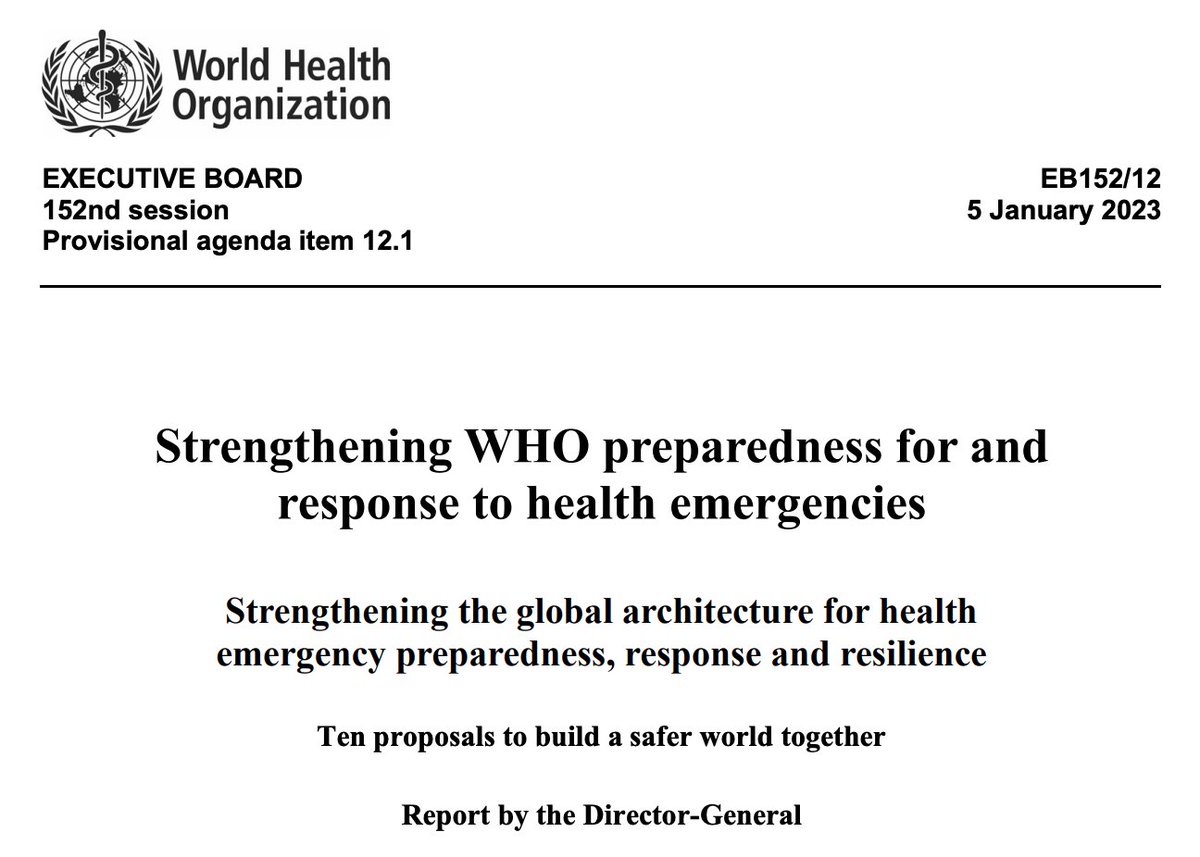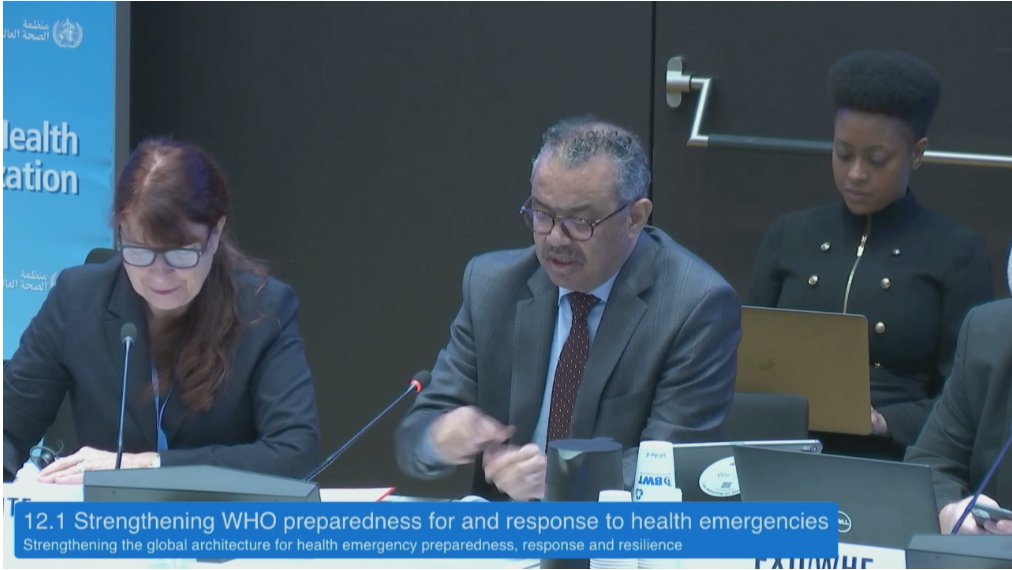
🚨 The Intergovernmental Negotiating Body (INB) published the "zero draft" of the #pandemictreaty last week and briefed Member States about it this week.
The draft will be discussed in Geneva from 27 Feb to 3 March.
Summary of the process & highlights on the new text in this 🧵
The draft will be discussed in Geneva from 27 Feb to 3 March.
Summary of the process & highlights on the new text in this 🧵

During the briefing, Member States expressed concern:
⏰ too little time between now and the next meeting
⌛️ too little time dedicated to complex issues.
Suggestions included postponing discussions on denser issues or inter-sessional work (which may disadvantage smaller states)
⏰ too little time between now and the next meeting
⌛️ too little time dedicated to complex issues.
Suggestions included postponing discussions on denser issues or inter-sessional work (which may disadvantage smaller states)
The “zero draft” follows the same structure as the "conceptual zero draft.”
✅ Introduction followed by objectives, guiding principles and scope
✅ Four chapters outlining substantive content
✅ Two chapters dedicated to proposed treaty governance.
✅ Introduction followed by objectives, guiding principles and scope
✅ Four chapters outlining substantive content
✅ Two chapters dedicated to proposed treaty governance.
https://twitter.com/nschwalbe/status/1593279505283457024?s=20&t=WUdUvTGkndwymM7TEAMdfA
The preamble and principles remain consistent with the conceptual draft, including references to the IHR, Intellectual Property Rights, WTO and TRIPS.
The principles emphasize a central role of WHO and suggest the adoption of Common but Differentiated Responsibilities (CBDR)
The principles emphasize a central role of WHO and suggest the adoption of Common but Differentiated Responsibilities (CBDR)
https://twitter.com/nschwalbe/status/1599906376821506049
Equity is a chapter and theme throughout. Proposals include:
🔗 WHO Global Pandemic Supply Chain and Logistics Network
🏭 increased manufacturing capacity
💰 mandated transparency in publicly-funded research
🔐 access and benefit-sharing (ABS)
💉20% of products set aside for WHO
🔗 WHO Global Pandemic Supply Chain and Logistics Network
🏭 increased manufacturing capacity
💰 mandated transparency in publicly-funded research
🔐 access and benefit-sharing (ABS)
💉20% of products set aside for WHO

Strengthening and sustaining capacity priorities, including:
🎯 centrality of Universal Health Coverage
🧑🏽⚕️ skilled domestic and global public health emergency workforce
👀 simulation exercises, regular monitoring, and universal peer review
🤝 human rights protections
🎯 centrality of Universal Health Coverage
🧑🏽⚕️ skilled domestic and global public health emergency workforce
👀 simulation exercises, regular monitoring, and universal peer review
🤝 human rights protections

Coordination, collaboration and cooperation include:
🗺 WHO as the directing and coordinating authority
🌍 Solidarity and protecting the most vulnerable
🦃 One Health, whole-of-government and whole-of-society approaches
📓 Health literacy, addressing mis- and dis-information
🗺 WHO as the directing and coordinating authority
🌍 Solidarity and protecting the most vulnerable
🦃 One Health, whole-of-government and whole-of-society approaches
📓 Health literacy, addressing mis- and dis-information

Financing suggestions include dedicating:
💶 5% of health expenditure to domestic pandemic preparedness, recover and response (PPRR) funding
💳 a certain percentage (TBC) of GDP to international pandemic PPRR funding
💶 5% of health expenditure to domestic pandemic preparedness, recover and response (PPRR) funding
💳 a certain percentage (TBC) of GDP to international pandemic PPRR funding

The treaty would be governed by a Conference of the Parties, reviewing implementation every three years, supported by:
🧮 administrative “Officers of the Parties” and a secretariat provided by WHO.
🔗 inclusive consultative body for advice/technical input (not decision-making)
🧮 administrative “Officers of the Parties” and a secretariat provided by WHO.
🔗 inclusive consultative body for advice/technical input (not decision-making)

The draft is silent on any oversight or accountability mechanism for the treaty, only to be agreed upon at the governing body's first meeting.
Proposed monitoring and accountability only focus on achievements and gaps.
bit.ly/lancettreaty
Proposed monitoring and accountability only focus on achievements and gaps.
bit.ly/lancettreaty
🗓 The treaty would enter into force 30 days after the 30th country ratifies. No reservations or exceptions are allowed.
٪ Once adopted, additional protocols would require a two-thirds majority.
٪ Once adopted, additional protocols would require a two-thirds majority.

• • •
Missing some Tweet in this thread? You can try to
force a refresh





















